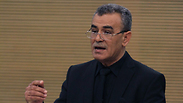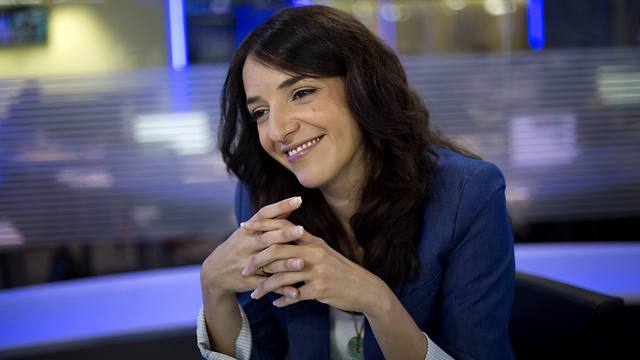
Radicals don’t want an open Arab society
Op-ed: The day Arab society is able to voice diverse, critical, irritating opinions without violent reactions and without needing bodyguards will be a historic day for all Arabs, wherever they are.
My regular response is: I am proud to live in a country where these voices express themselves. The fact that they are published doesn’t stand as proof that the content is true. It stands as proof that Israel is a democratic society that constantly celebrates freedom of expression.
But turns out there are communities where people must voice one lone opinion. In many Arab states there is no democracy. It's very difficult, if even possible, to voice unusual and critical opinions.
It's happening in Muslim communities in the West as well. A Dutch doctoral student of Turkish descent, Mehmet Shahin, tried to fight the phenomenon of admiration for Hitler among young members of his community. He was forced to seek refuge. It’s unclear whether most of his community members are Hitler fans, but it is clear that Hitler fans are the dominant force in the community.

He was preceded by Ayaan Hirsi Ali, who became a member parliament and was the target of death threats. She dared criticize Islam's treatment of women and has been living under tight security ever since. Hassen Chalghoumi, the imam of the Drancy mosque near Paris, voices profound criticism against radical Islam. He and his family members have been attacked. He needs regular protection, too. There are other Muslims who have voiced critical opinions. They share the same fate.
The Arab community in Israel is no different. Father Gabriel Naddaf, who supports the enlistment of young Arabs, has been harassed countless times.
The leadership prefers the opposite direction, of course. Knesset Member Jamal Zahalka, for example, clarified that "whoever does national service will be treated like a leper." He was sitting next to the chief inciter and instigator, Raed Salah.
It's not that there aren't other Arabs who share Naddaf's opinion. On the contrary: Surveys published in the past decade show that there was, and perhaps still is, a majority among young Arabs who want to join communal and national service.
On this background, it takes a lot of courage to deviate from the chorus line and say something against the fans of incitement. Many Arabs think differently, but only few open their mouths. Lucy Aharish stands out, mainly because she is the most famous one among them. She is an assertive journalist whose opinions are likely on the left, but not radically so.
The criticism voiced against her, mainly by the ultra-radical left, was expected. The radical left in Europe also came out against Hirsi Ali and not against the dark jihadists she criticized. After all, we are talking about a left that despises America and Israel and Zionism, and its natural and historic coalition is with dark tyrants. It used to be Stalin; in the past decade they have been marching in Europe with Hezbollah and Hamas flags, as someone screams in the background: "Hamas, Hamas, Jews to the gas."
The radical left in Israel is a branch of the radical left in the world. Its party, the Joint Arab List, signed a pact with Salah. The representatives of the delusional left are lashing out at Aharish, who deviated from the party line. It's a regular pattern: Enlightened in the service of the dark. Occasionally, they grumble: How is it possible that Aharish doesn’t identify with her people? That's an interesting question, especially coming from those who have turned the solidarity with their people into dangerous fascism.
They are not enlightened. They are racist. They are fighting for their right to express the unusual, defying, irritating opinion. And it is their right. But when such unusual and provocative opinions are voiced among the Arab community, the community rises up against them. Against Mehmet, against Hirsi Ali, against Chalghoumi and against Naddaf and Aharish. The members of the superior radical race are allowed to voice unusual opinions, the Arabs are not.
The day that Arab society is able to voice diverse, critical, irritating opinions - without violent reactions and without needing bodyguards - will be a historic day for all Arabs wherever they are. But the radicals don’t want an open Arab society. They prefer a society with one single voice.










